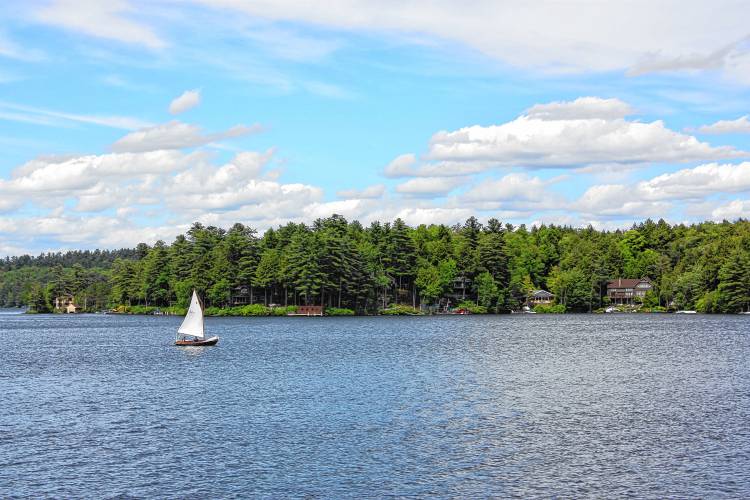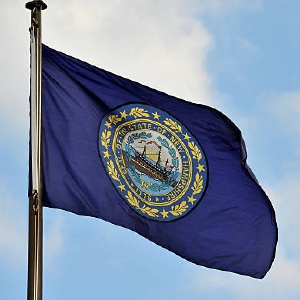Opinion: Why regular folks should care about wake sport legislation

A boat is sailing on Lake Sunapee. Monitor file photo
| Published: 03-27-2024 3:27 PM |
Elizabeth Harper, PhD is the executive director of the Lake Sunapee Protective Association.
It isn’t surprising that many New Hampshire residents are unfamiliar with wake boats and may not feel compelled to urge their representatives in the House to vote for their regulation. Wake boats typically sell for around $300,000, a price point that is considerably out of reach for most of the people who recreate on New Hampshire’s lakes. So, the issue might not seem relevant to the general public, but the potential costs of unregulated wake sports to New Hampshire’s lakes and economy are far higher than most people imagine.
Last year was New Hampshire’s worst year on record for cyanobacteria blooms which pose health risks for people, pets and wildlife. Irresponsible wake boating isn’t the only cause of this issue, but it is one of the factors that is easily prevented. Wake sports can be conducted responsibly in ways that minimize impacts to water quality and lake ecosystems, but the 3-5 ft. tall waves and intense propellor wash generated by wake boats can do tremendous damage when wake surfing takes place too close to shorelines or in shallow waters.
Irreversible impacts include shoreline erosion, degradation of fish habitat, uprooting of aquatic plants, reduction of water quality, churning of sediment, and release of phosphorus which can lead to toxic cyanobacteria blooms. New Hampshire’s lakes are vital to our economy. They are natural resources that belong to us all and that must be used carefully to ensure that they are not degraded and that the recreational activities of a few don’t diminish the health and safety of other forms of recreation.
To address these issues, Rep. Linda Tanner introduced HB 1390 which proposes reasonable limitations on wake sports that are based on sound science. It does not ban or prohibit wake boats or wake sports. The original bill proposed limiting wake sports to areas 500 ft. from shorelines and depths of 20 ft. on bodies of water of at least 50 acres. Similar legislation has been passed in Vermont and these criteria are supported by Vermont’s Department of Environmental Conservation, Michigan’s Department of Natural Resources, and numerous scientific studies. The best science on the issue is summarized well in a thorough literature review of over 50 sources synthesized by the State of Michigan’s Department of Natural Resources in July 2023.
The wake sports industry is strongly opposed to these regulations, and HB 1390 has been amended, reducing the setback to 300 ft and eliminating the depth requirement. On Thursday, March 28, the NH House of Representatives will have the opportunity to vote on the amended version of HB 1390 as well as HB 1301 which would allow residents to petition the New Hampshire Department of Safety to consider wake surfing restrictions for individual lakes and ponds. These bills offer important opportunities to take a step in the right direction.
The impacts from unregulated wake sports can have devastating long-term consequences that are completely avoidable. We all have a responsibility to manage our shared resources in a way that allows future generations to experience our lakes as we do today.
Article continues after...


 Opinion: The truth of it
Opinion: The truth of it Opinion: Public school standards overhaul will impact every facet of public education in NH
Opinion: Public school standards overhaul will impact every facet of public education in NH Opinion: A bad idea for New Hampshire
Opinion: A bad idea for New Hampshire Opinion: Medical Aid in Dying would have spared my father’s suffering
Opinion: Medical Aid in Dying would have spared my father’s suffering
